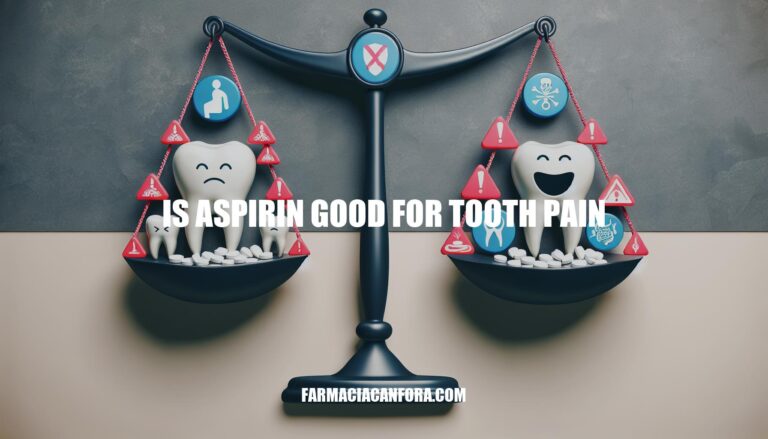


Aspirin is a widely used medication known for its effectiveness in relieving pain, reducing fever, and combating inflammation. It’s commonly taken to alleviate headaches, muscle aches, and even to manage chronic conditions like arthritis. But when it comes to dental discomfort, is aspirin a good choice for toothache“=””>toothache”>tooth pain?
Aspirin works by irreversibly inhibiting the enzyme cyclooxygenase (COX), which is crucial for the synthesis of prostaglandins and thromboxanes. Prostaglandins are lipid compounds that play a key role in inflammation and pain. By blocking COX, aspirin reduces the production of prostaglandins, thereby decreasing inflammation and pain.
For tooth pain, which often involves inflammation of the gums or surrounding tissues, aspirin’s ability to lower prostaglandin levels can help alleviate both the pain and the underlying inflammation. This makes it an effective option for managing tooth pain.
Aspirin is effective for tooth pain due to its anti-inflammatory properties. It works by blocking the production of prostaglandins, which are chemicals responsible for pain and inflammation. This helps reduce swelling and discomfort around the affected tooth. Additionally, aspirin can alleviate the intensity of pain signals sent from the nerves to the brain, providing relief from toothache.
Here are the guidelines for using aspirin to relieve tooth pain:
Remember, aspirin is a temporary pain relief solution and not a substitute for dental treatment.
Here are the potential risks and side effects of using aspirin for tooth pain:
If you have any concerns, it’s best to consult with a healthcare professional.
Here are some over-the-counter pain relief options for tooth pain compared to aspirin:
Each of these options has its own benefits and potential side effects, so it’s important to choose the one that best suits your needs.
Aspirin can be an effective option for managing tooth pain due to its anti-inflammatory properties, which help reduce swelling and discomfort around the affected tooth.
However, it’s essential to follow guidelines for using aspirin orally and consult a dentist if the pain persists. Potential risks and side effects include gastrointestinal issues, allergic reactions, chemical burns, and increased bleeding.
When compared to other over-the-counter pain relief options like ibuprofen, naproxen, and acetaminophen, aspirin’s effectiveness may vary depending on individual needs.
Ultimately, while aspirin can provide temporary relief from tooth pain, it is not a substitute for dental treatment and should be used under the guidance of a healthcare professional.